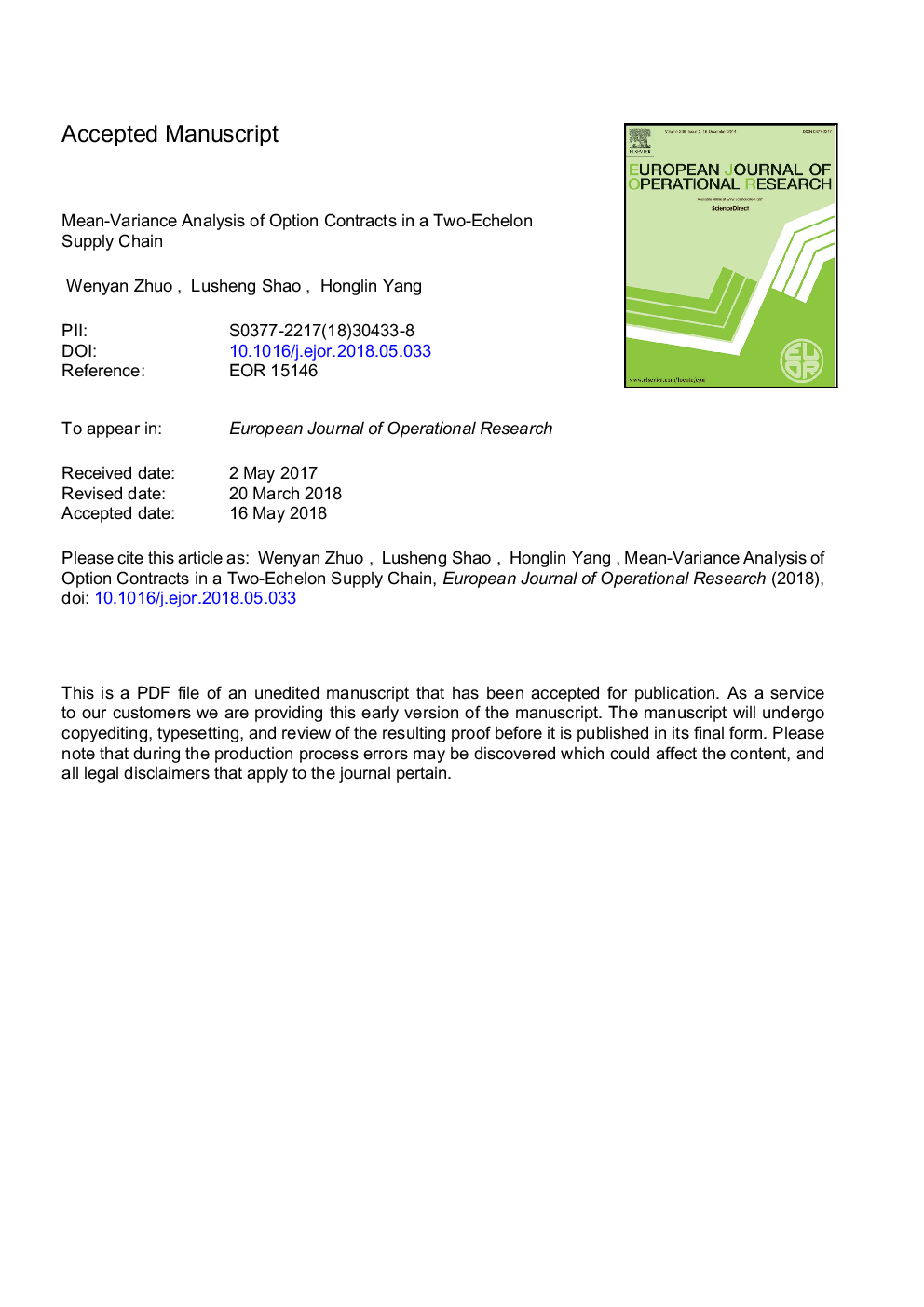| Article ID | Journal | Published Year | Pages | File Type |
|---|---|---|---|---|
| 6894452 | European Journal of Operational Research | 2018 | 45 Pages |
Abstract
This paper studies the implications of risk considerations for option contracts in a two-echelon supply chain. Under the mean-variance framework, we first investigate the conditions for coordinating the supply chain by using option contracts. We find that supply chain coordination is not always achieved, contrasting with the result that properly designed option contracts can always coordinate a supply chain in the absence of risk considerations. Second, we analyze the Stackelberg game for a decentralized supply chain in two cases, depending on whether the retailer's risk aversion threshold is known to the supplier. We show that when the threshold is public information, there exists a unique equilibrium in which the supplier with a higher risk tolerance prefers to reduce the exercise price, and thus, the retailer's order quantity increases. When the retailer's risk aversion threshold is private information, the retailer has an incentive to pretend to be less risk averse. To curb this incentive distortion, we design a new minimum option quantity commitment for the supplier. We complement our theoretical results with numerical simulations.
Keywords
Related Topics
Physical Sciences and Engineering
Computer Science
Computer Science (General)
Authors
Zhuo Wenyan, Shao Lusheng, Yang Honglin,
